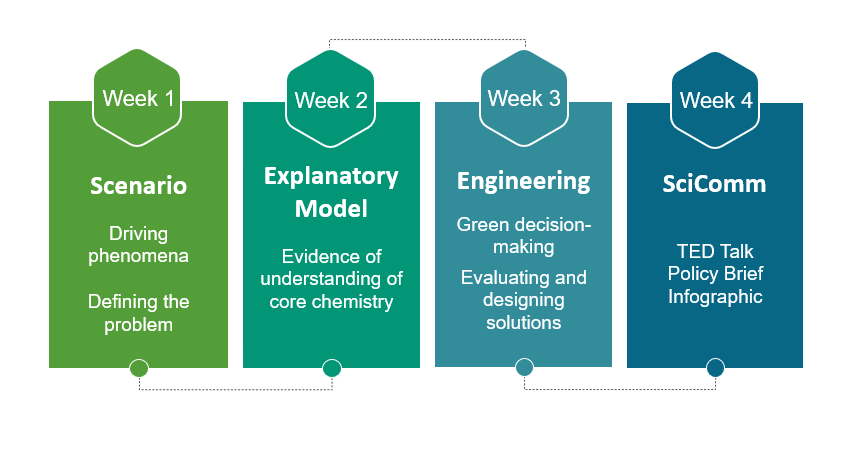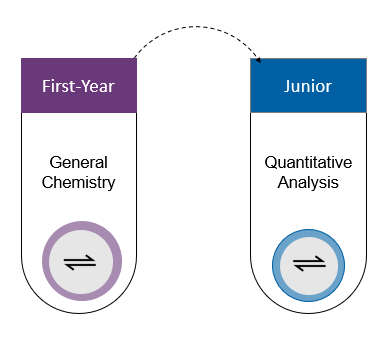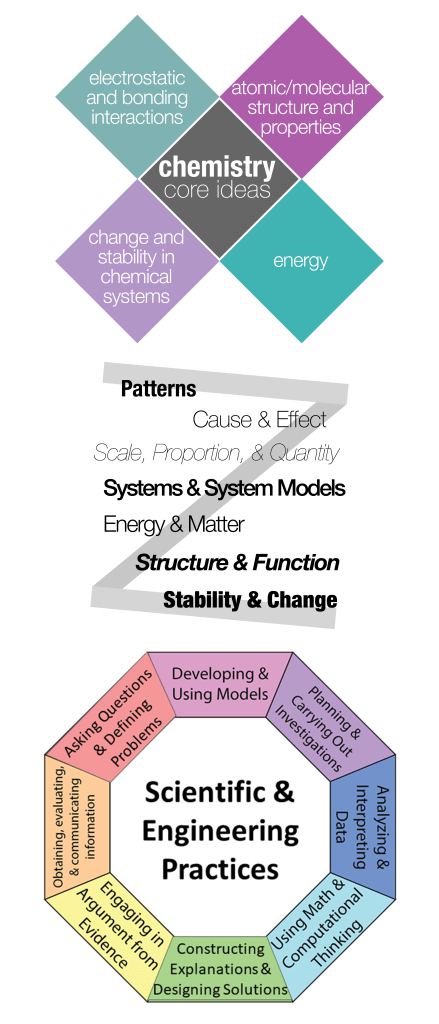Evidence-Centered, Design-Based
Education Research
In the Day Lab, our focus is on supporting student learning through the design and evaluation of curricular materials, assessments, and learning environments centered on evidence of How People Learn. This methodology differs from classic cognitive or educational psychology research, which often takes students outside of the learning environment to engage in well-structured tasks. Our approach utilizes Design-Based Research cycles, shown below.

Green & Sustainable Chemistry Education


Successful integration of green chemistry into the curriculum requires a deep knowledge of how people learn and an understanding of how to use this knowledge to design curricula and curricular materials to support learning. There is an urgent need for:
- a theory of learning that can support students’ green and sustainable thinking,
- curricular activities that are supported by theory and is informed by the results of assessment, and
- assessments to measure students’ knowledge-in-use.
Eliciting Probabilistic Reasoning

To evaluate reasoning throughout the curriculum, this project explores the development of student reasoning in general chemistry and quantitative chemical analysis. By choosing similar topics, such as equilibria, I can compare the activation of intellectual resources in different courses in the 4-year curriculum and explore how increasing the complexity of the phenomenon impacts these reasoning patterns. Starting in general chemistry with the introduction of simpler, single considerations of chemical equilibrium (a single acid dissociation) and building in complexity with multiple concurrent equilibria (base-association and solubility) to probe how the phenomenon’s complexity impacts the student reasoning.
Three-Dimensional Learning

Following the revolution in the K-12 science education sphere (see the Framework for K-12 Science Education for more details), I ascribe to the movement to reorient our expectations away from rote memorization or recall of basic facts and towards a three-dimensional (3DL) approach. The new assessment focus is measuring students’ performances (in the form of Scientific and Engineering Practices, SEPs) of their knowledge (as revealed by use of Core Ideas and Crosscutting Concepts as lenses) as they examine a chemical phenomenon. Although well supported by theory and evidence, this paradigm shift cannot be realized in the traditional slate of assessments and tasks in use by college chemistry instructors.
About

Elizabeth Day is a tenure-track assistant professor at the University of Texas – El Paso. Her current research interests include curriculum design, assessment design, eliciting student reasoning, and green and sustainable chemistry education.
Contact
Interested in designing curricular materials to support student learning?
